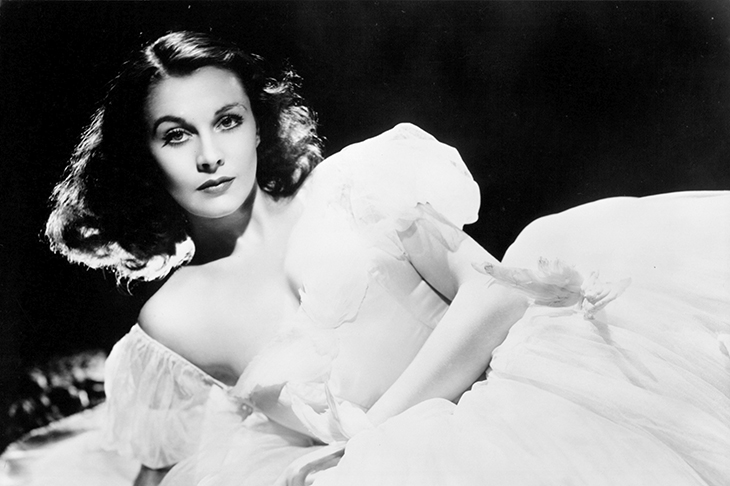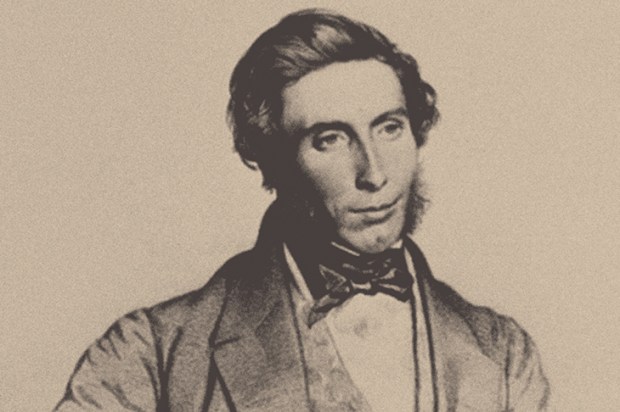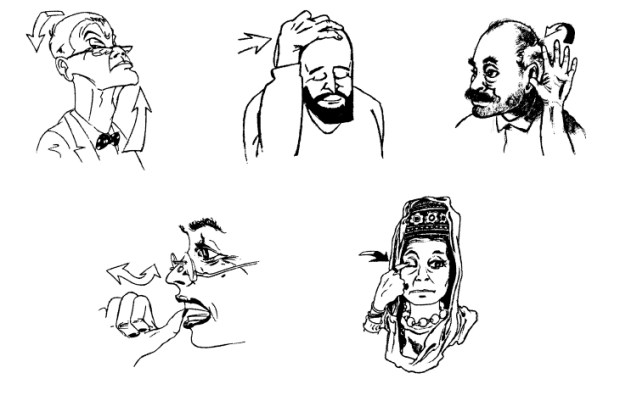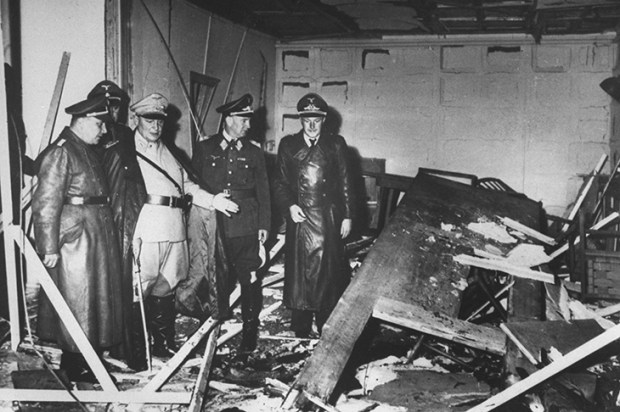‘Dark Star’ is a suitable enough title in itself, but the definition makes it a brilliant one: ‘A Dark Star’, we are told in this book, ‘is shadowed, often detectable by its gravitational effect on other bodies. It is often a component of a binary star and can cause the brightness of its visible partner to vary periodically.’ That is to say, Vivien Leigh was bipolar and married Laurence Olivier, and these things dominated her life.
She was born in Darjeeling in 1913, her father, Ernest Hartley, a stockbroker. When she was six, she was sent to school in England. This was not unusual, but that does not mean that she did not feel abandoned. She was educated by Roman Catholic nuns and read a lot, including Rudyard Kipling.
Vivien had a gift for prophecy. ‘When I leave school, I am going to be a great actress,’ she announced; and Strachan convincingly argues that she did become one. Accepted by Rada, she was introduced to a fair young man on a chestnut horse. ‘I think he is the perfect type of Englishman,’ she commented. ‘I am going to marry him’; and she did. He was Leigh Holman, kind and reliable, and became a lawyer and her lifelong friend. From the beginning she was astonishingly pretty, well-mannered, serious, hard-working and had a steely determination. In 1936 she saw a rising young actor in a dashing role — Laurence Olivier. ‘That is the man I am going to marry,’ she whispered, again with her usual accuracy.
What makes this account of a familiar story outstanding is that Strachan wins the reader’s trust. For instance, he adds that the third story may be legend, sprung from the second. As an experienced man of the theatre, he suggests, qualifies and adds interesting views of his own. People have been gossipping, exaggerating and frankly making things up about the Oliviers for years. We need a reliable guide.
So their drama unfolds. Their passion was immediate and overwhelming: ‘I think I have never lived so intensely,’ Vivien said, years later. Olivier went to Hollywood for Wuthering Heights and Vivien followed, aware that Gone With the Wind was in production but not yet finally cast. She told a friend: ‘I intend to get the star part.’ Having contrived to be present on the set, perfectly dressed, she was introduced to the film’s producer, David O. Selznick, by his brother Myron, her US agent, with the words: ‘Hey, genius, meet your Scarlett O’Hara.’
Soon Olivier and Leigh were both stars, but she the brighter. Strachan does not think their professional partnership harmed either of them, but it is obviously more difficult to find a play or film with perfect parts for two. The villain of this book is Kenneth Tynan, the brilliant, influential critic who adored Olivier and consistently trashed Leigh, claiming that she held back his talent. Once, forgetfully, I asked Olivier why he had not played Antony. There was a chilly pause before he replied: ‘One of my greatest triumphs.’ Vivien’s Cleopatra was much admired too, but Tynan described it as ‘presenting a glibly mown lawn where her author had imagined a jungle’.
Strachan allows that there was some rivalry between the two. When Olivier directed Vivien on stage in Tennessee Williams’s A Streetcar Named Desire, the production was disappointing, though she redeemed herself in the film with Marlon Brando. Nevertheless, Olivier and Leigh became the most celebrated acting partnership in the world — almost a definition of glamour, as well as talent. They bought a house in Sussex that they both adored; each had deserted a child, but now everyone, more or less, became friends with everyone. The dark shadow, however, remained.
Vivien had ‘episodes’. She was bipolar, a condition then referred to as manic depression. These were moods of intense loneliness and despair, alternating with a wildness which might include running naked through the streets, violent abuse, scorching anger. Once she bit someone’s finger. Afterwards she would apologise politely, perhaps not really remembering. Even loyal friends, such as John Gielgud and Noël Coward, did not understand, and some blamed alcohol. After ten happy, triumphant years, there were ten that were more mixed. Both Leigh and Olivier had affairs.
They eventually divorced and both found new partners. Here I almost disagree with Strachan. He says that it is unfair to describe the rest of Leigh’s career as ‘a minor-key coda’, whereas to me it seems, in spite of major roles, courage and successes, at least natural. The reason, I think, is that Olivier had discovered John Osborne, and so The Entertainer, the new theatre and, eventually, the National Theatre. Leigh became great friends with Osborne and others, but never appeared in such plays. Where Olivier was a hugely important part of the future, Vivien was a distinguished part of the past. But in fact all this might have changed. She had been cast in A Delicate Balance, one of Edward Albee’s best plays, when she died suddenly of tuberculosis, aged 53.
Strachan avoids the trap of allowing the book to become a recital of which part followed which, and how it did, and has told a story that is exciting, glamorous (you cannot avoid the word) and finally tantalisingly sad.
Got something to add? Join the discussion and comment below.
Get 10 issues for just $10
Subscribe to The Spectator Australia today for the next 10 magazine issues, plus full online access, for just $10.
You might disagree with half of it, but you’ll enjoy reading all of it. Try your first month for free, then just $2 a week for the remainder of your first year.














Comments
Don't miss out
Join the conversation with other Spectator Australia readers. Subscribe to leave a comment.
SUBSCRIBEAlready a subscriber? Log in